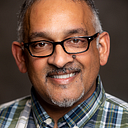A.I. Is Helping Accelerate Math Education Towards Its Final Resting Place: Dehumanization

The cult of pedagogy which has consumed math education the last few years has only made the arrival of something like ChatGPT more topical and alluring. Why wouldn’t it be? Math education is currently predicated on teacher-facing interests of delivery, and metrics which can measure the measurability and efficiency of such instruction.
Math education was built for AI to devour it, thinking it would be some kind of equal partner. Perhaps in the beginning. But, teacher’s jobs will become obsolete if the fixation with AI continues. That’s because AI’s allure is rooted in efficiency — something which math education cannot exist without. Which means, it is something that teachers cannot live without.
Ten years ago, I quit teaching. While my reasons were complex, a core reason was that nobody really was curious about mathematics outside the delivery of it. They had no interest for its history, thematic development, or current endeavors. Ironically, they actually had no interest in mathematics. they only had interest in its dutiful delivery — education.
In 2023, the climate is the worst I have ever seen. My last blog more or less said it — mathematics is dead.
If the heart and soul of mathematics education is dead — actual mathematics — then a growing obsession with AI is perfectly ripe.
At this point, I would like to defer to someone whose opinion carries much weight in mathematics — especially the United States. That would Po-Shen Loh, the current coach of the US International Math Olympiad Team.
He has been travelling all over North America telling people that we need to teach students to be more human — in order to outsmart AI.

“We need to rethink what learning really is,” he asserts. When it comes to math, learning must go beyond rote memorization of rules and include creative approaches to solving problems, he says.
Shortly after ChatGPT’s launch, Loh realized that the artificial intelligence model was able to do tasks that he never thought he’d see AI do in his lifetime. His initial shock turned to something else. “What I felt was fear,” he says, “for the general population — and for everyone.” He could see that the stakes were huge. “People’s jobs are going to be in trouble. And if it can do this today, what’s it going to be able to do in 10 years?”
Loh didn’t just sound the alarm. Instead, he continued to do what he’s done for years: encourage students to focus on human relationships, to make an impression on people, to stand out. In other words, he coaches people how to outsmart artificial intelligence.
Just take a pulse of math education today. There is less and less interest devoted to the love of mathematics, implementing any Stage of Romance, that Alfred North Whitehead — mathematician, philosopher, writer, and educator — passionately argued for nearly 100 year ago. He would have believed that AI would be something beyond fearful.
He would think it would be the golden ring for inert knowledge. Our quick access to infinite storage tanks of knowledge would be the death rattle for curiosity, romance, and humanness for learning

Frankly, I refuse to participate in this feverish occupation with efforts that are undermining the humanness and beauty of doing mathematics for the sake of mathematics, and not some cheap facsimile that is rooted in compliance, competition, and commercialization.
The same homogenization and accessibility to create has already infiltrated the music industry.

While there are many things that AI can help us with, it also is, according to my mentor and friend Peter Harrison, this:
There is no thinking involved. It’s just a massive amalgam of human impressions, biases, and ignorance.
It seems, in math education, we have lost the plot on rehumanizing math education, as the dive into how AI can “help” teachers reaches a rolling boil in social media discussions.
To be frank, we lied about even having “the script”. I for one, will not go down without a fight…
